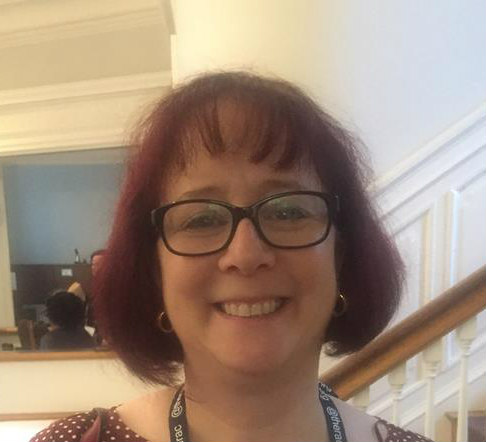This week’s parasha, Va’yeira (Genesis 18:1-22:4), is chock full of familiar stories, including Abraham’s welcome of 3 strangers, the promise of the birth of Isaac and Sarah’s resultant laughter, the destruction of Sodom and Gomorrah, the casting out of Hagar, and the Akedah, the binding of Isaac. I am choosing to focus on the story of Sodom and Gomorrah, specifically Abraham’s argument with G-d, prior to the destruction. As you may recall, when G-d tells Abraham of the plan to destroy Sodom and Gomorrah, Abraham asks, “Will you sweep away the innocent along with the guilty?” (Gen 18:23) Abraham asks G-d to spare the cities if G-d can find 50 innocent people there, and after bargaining, Abraham gets G-d down to 10; if there are 10 innocent souls in those two cities, G-d will spare the cities. As it turns out, Sodom and Gomorrah are so bad there are not even 10 innocents there, and they are destroyed. In this story we learn that G-d is willing to spare everyone else in order to save 10 innocent lives. How much more so then, should we protect a group if the majority are innocent and there are but, perhaps, a few guilty? Clearly, this parasha teaches us to err on the side of saving the innocent, yet some in our society would allow thousands, if not millions, of innocent refugees to suffer, on the grounds that there could possibly be a few who are terrorists (there is in fact no evidence that there are any terrorists at all). Parashat Va’yeira is crystal clear on this. To paraphrase Abraham: Will we sweep away the innocent along with the guilty? WRJ is not silent on this issue, and we never have been. Our first resolution regarding immigration was made in 1915. Our most recent statement on the current refugee crisis was made by our Executive Committee on September 29, 2015. The situation has not changed much since. We are in the midst of the greatest human catastrophe since World War II, and there is no end in sight. The idea of excluding whole categories of people out of fear of a few should be an anathema to us as Jews. After all we are commanded 36 times in the Torah to remember that we were strangers in the land of Egypt. We are commanded, not asked, not suggested, but commanded, to welcome and respect the stranger. What better time than now to stand up and do what we can to fulfill that commandment? Read the 2015 statement and learn more about some ways in which you can help. You can also learn more about the refugee crisis from our partners at HIAS.org and The Religious Action Center of Reform Judaism. Through our resolutions, our advocacy work, and our guides and calls for women’s groups and individuals to take action, WRJ is and has always been in the forefront of this issue and other issues of Social Justice. WRJ is the voice of Reform Jewish Women. Learn more about WRJ’s advocacy work in this and other areas on the website. Plan now to join the WRJ Delegation at the Religious Action Center’s Consultation on Conscience April 30- May 2, 2017, where you can participate in WRJ’s special programming. We, as Reform Jewish women in the 21st century, must still remember Abraham and Sarah’s example, welcoming the stranger and fighting for the innocent. Abigail Fisher is a member of the WRJ Executive Committee and the Reform Movement’s Commission on Social Action. She is a past president of WRJ’s Northeast District and the founding chair of URJ Six Points Sci-tech Academy. She is a member of Beth El Temple Center (and the WRJ thereof) in Belmont, MA.
Related Posts

Parashat Yom Rishon shel Rosh HaShanah

Cultivating a Culture of Accountability and Belonging


